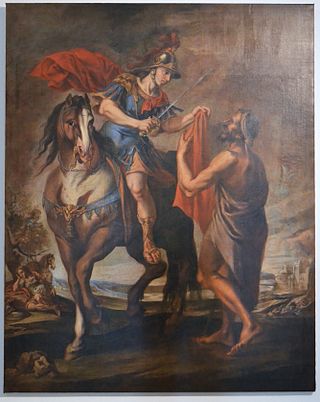April 25 is the 115th day of the year in the Gregorian calendar; 250 days remain until the end of the year.
June 22 is the 173rd day of the year in the Gregorian calendar; 192 days remain until the end of the year.
May 19 is the 139th day of the year in the Gregorian calendar; 226 days remain until the end of the year.
May 26 is the 146th day of the year in the Gregorian calendar; 219 days remain until the end of the year.
March 30 is the 89th day of the year in the Gregorian calendar; 276 days remain until the end of the year.
November 5 is the 309th day of the year in the Gregorian calendar; 56 days remain until the end of the year.
October 5 is the 278th day of the year in the Gregorian calendar; 87 days remain until the end of the year.

John is a common male name in the English language ultimately of Hebrew origin. The English form is from Middle English Ioon, Ihon, Iohn, Jan (mid-12c.), itself from Old French Jan, Jean, Jehan, from Medieval Latin Johannes, altered form of Late Latin Ioannes, or the Middle English personal name is directly from Medieval Latin, which is from the Greek name Ioannis (Ιωάννης), originally borne by Jews transliterating the Hebrew name Yochanan, the contracted form of the longer name Yehochanan, meaning "YHWH is Gracious" or "YHWH is Merciful". There are numerous forms of the name in different languages; these were formerly often simply translated as "John" in English but are increasingly left in their native forms.
Robert Brown may refer to:
John or Johnny Jackson may refer to:
John Martin may refer to:
Allison is a surname of English and Scottish origin. It was a patronym, in most cases probably indicating son of Allen, but in other cases possibly from Ellis, Alexander, or the female given name Alice/Alise.
James, Jim, or Jimmy Simpson may refer to:
John Alexander may refer to the following people:
Gavin is a Celtic male given name. It is the Scottish variation of the medieval Welsh name Gawain, meaning "God send" or "white hawk". Sir Gawain was a knight of King Arthur's Round Table. Sir Gawain and the Green Knight is an epic poem connected with King Arthur's Round Table. Gawain beheads the Green Knight who promptly replaces his head and threatens Gawain an identical fate the same time next year. Decapitation figures elsewhere: the Italian name Gavino is the name of an early Christian martyr who was beheaded in 300 AD, his head being thrown in the Mediterranean Sea only later reunited and interred with his body.

Ralph is a male name of English origin, derived from the Old English Rædwulf and Old High German Radulf, cognate with the Old Norse Raðulfr.
Wallace is a Scottish surname stemmed from the Anglo-Norman French Waleis "Welshman". It is a northern variant form of Gualeis "Welshman" ; adjectiv gualeis "Welsh" ; same as walois "the oil language".

Martin may either be a given name or surname. In Scotland, Martin or McMartin is a common surname of Scottish Gaelic origin. Martin is, however, more common as a masculine given name in many languages and cultures. It comes from the Latin name Martinus, which is a late derived form of the name of the Roman god Mars, protective godhead of the Latins and, therefore, god of war. The meaning is usually rendered in reference to the god as "of Mars" or "of war/warlike" ("martial"). Alternatively, it may also be derived from the Proto-Germanic elements "mar", meaning famous and "tank", meaning thought, counsel.
This page is based on this
Wikipedia article Text is available under the
CC BY-SA 4.0 license; additional terms may apply.
Images, videos and audio are available under their respective licenses.


